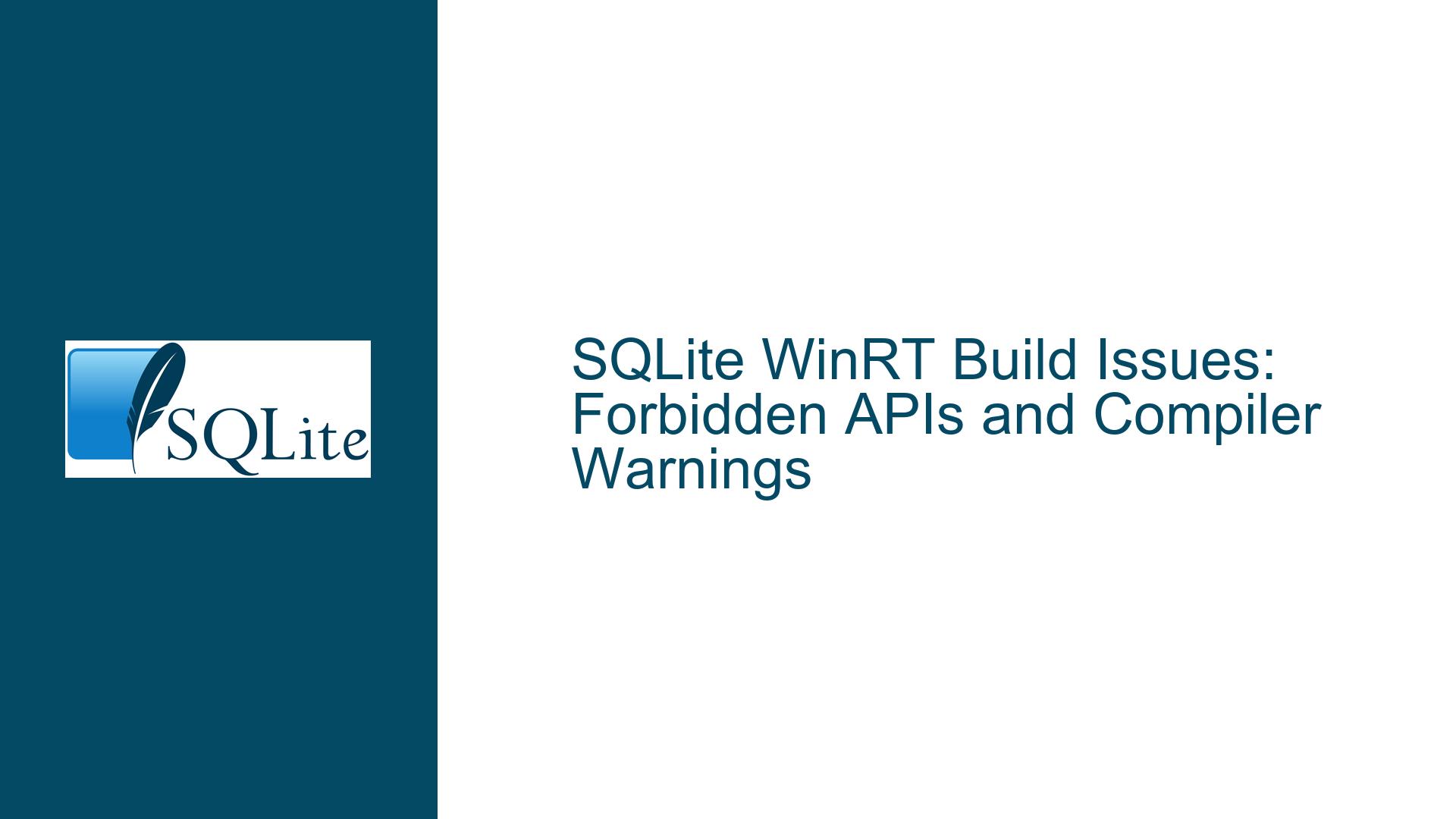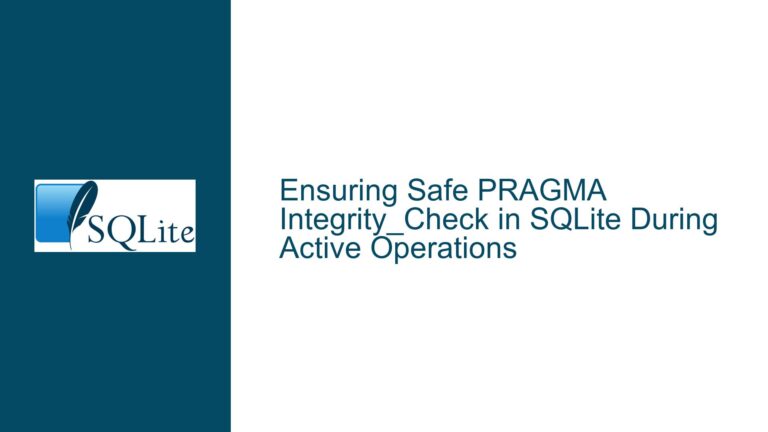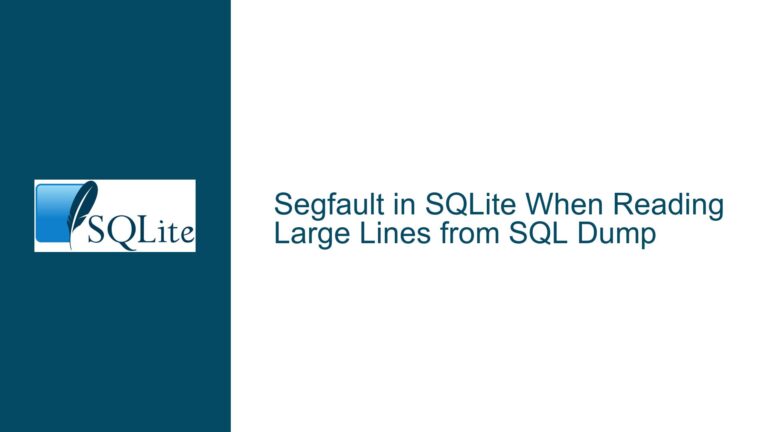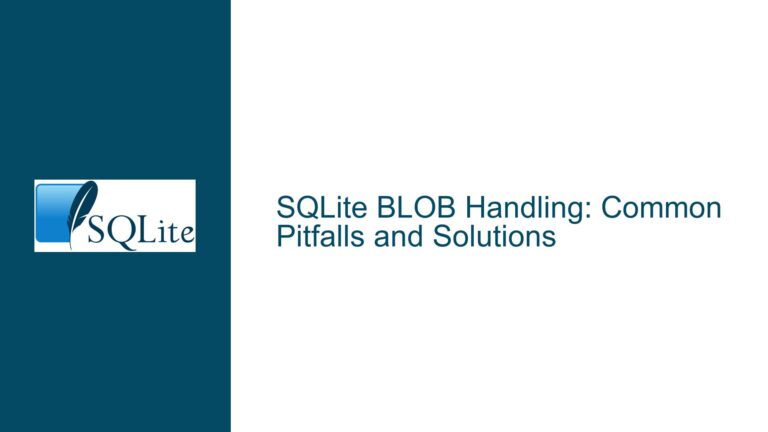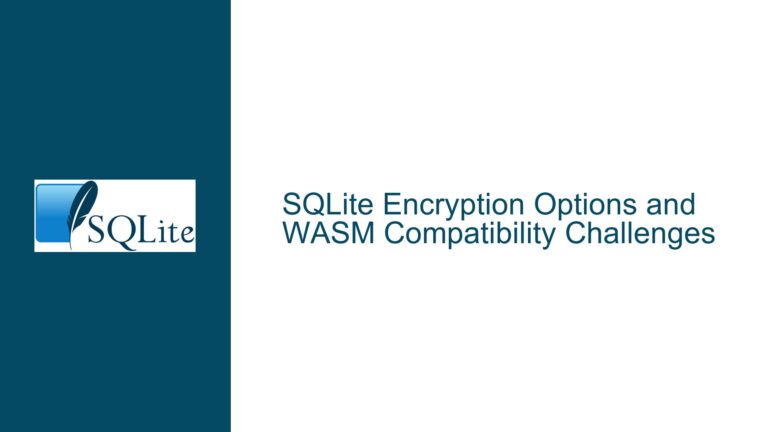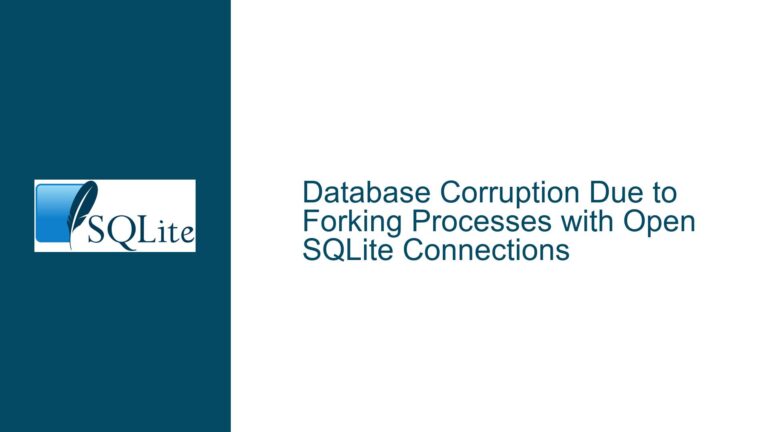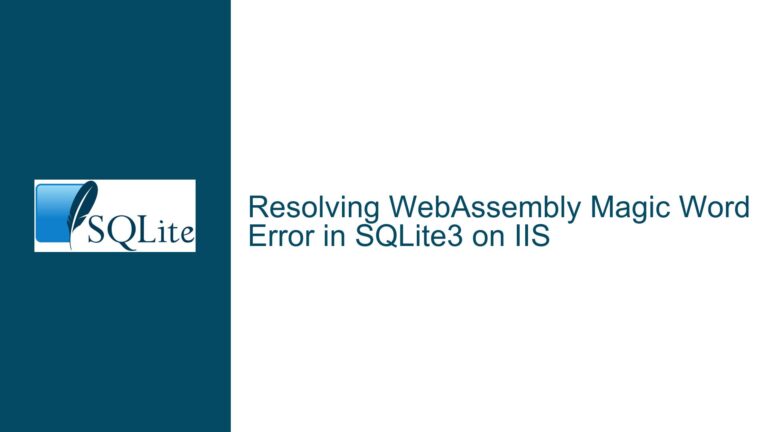SQLite WinRT Build Issues: Forbidden APIs and Compiler Warnings
SQLite_OS_WINRT Compilation Errors and Forbidden APIs in UWP
When building SQLite for Windows Runtime (WinRT) or Universal Windows Platform (UWP), developers often encounter specific issues related to undefined preprocessor directives and the use of APIs that are explicitly forbidden in UWP environments. These issues can prevent successful compilation and execution of SQLite in UWP applications. The primary problems include the misuse of SQLITE_OS_WINRT in preprocessor directives, reliance on forbidden console APIs such as GetStdHandle, GetConsoleScreenBufferInfo, and SetConsoleTextAttribute, and the use of DebugBreak, which is also restricted in UWP.
The SQLITE_OS_WINRT directive is used to conditionally compile code specific to the WinRT environment. However, if this directive is not defined, some compilers will throw errors due to the use of #if with an undefined value. This is particularly problematic in environments where the directive is not set by default, leading to compilation failures. Additionally, UWP restricts access to certain Win32 APIs that are traditionally used in desktop applications. For example, GetStdHandle and related console functions are not available in UWP, as they are considered part of the desktop API surface. Similarly, DebugBreak, which is commonly used for debugging purposes, is also forbidden in UWP applications.
These issues are compounded by the fact that SQLite’s shell.c file contains code that is not fully compatible with UWP’s API restrictions. The shell.c file includes functions like printBold, which rely on console APIs that are not available in UWP. This results in compilation errors and necessitates modifications to the code to ensure compatibility with UWP.
Undefined SQLITE_OS_WINRT and Forbidden Console APIs
The root cause of these issues lies in the conditional compilation directives and the reliance on APIs that are not part of the UWP API surface. The SQLITE_OS_WINRT directive is used to conditionally compile code for WinRT environments, but if it is not defined, the compiler will encounter errors when processing #if SQLITE_OS_WINRT statements. This is because the directive is not set by default in many build configurations, leading to undefined behavior during compilation.
The use of forbidden console APIs such as GetStdHandle, GetConsoleScreenBufferInfo, and SetConsoleTextAttribute is another significant issue. These APIs are part of the Win32 console API, which is not available in UWP applications. UWP applications run in a sandboxed environment with restricted access to certain Win32 APIs, and these console functions are among those that are explicitly forbidden. When the SQLite shell attempts to use these APIs, the build process fails because the functions are not available in the UWP environment.
Similarly, the use of DebugBreak in the SQLite shell is problematic. DebugBreak is a Win32 API used to trigger a breakpoint in the debugger, but it is also forbidden in UWP applications. When the SQLite shell attempts to use DebugBreak, the build process fails because the function is not available in the UWP API surface.
Implementing Conditional Compilation and Alternative APIs for UWP
To resolve these issues, developers must modify the SQLite shell.c file to ensure compatibility with UWP. This involves implementing proper conditional compilation for the SQLITE_OS_WINRT directive and replacing forbidden APIs with UWP-compatible alternatives.
First, the SQLITE_OS_WINRT directive should be defined with a default value if it is not already defined. This can be done by adding the following code at the beginning of the shell.c file:
#if !defined(SQLITE_OS_WINRT)
# define SQLITE_OS_WINRT 0
#endif
This ensures that the SQLITE_OS_WINRT directive is always defined, preventing compilation errors related to undefined preprocessor directives.
Next, the printBold function, which relies on forbidden console APIs, should be modified to use UWP-compatible alternatives. In UWP, the OutputDebugStringA function can be used to output debug strings, which is a suitable replacement for the console APIs. The modified printBold function should look like this:
static void printBold(const char *zText){
#if SQLITE_OS_WINRT
OutputDebugStringA(zText);
#else
HANDLE out = GetStdHandle(STD_OUTPUT_HANDLE);
CONSOLE_SCREEN_BUFFER_INFO defaultScreenInfo;
GetConsoleScreenBufferInfo(out, &defaultScreenInfo);
SetConsoleTextAttribute(out,
FOREGROUND_RED|FOREGROUND_INTENSITY
);
printf("%s", zText);
SetConsoleTextAttribute(out, defaultScreenInfo.wAttributes);
#endif
}
This modification ensures that the printBold function uses OutputDebugStringA in UWP environments, while retaining the original functionality in non-UWP environments.
Finally, the use of DebugBreak should be conditionally compiled to prevent its use in UWP environments. The following modification ensures that DebugBreak is only used in non-UWP environments:
#if defined(_WIN32) || defined(WIN32)
#if !SQLITE_OS_WINRT
DebugBreak();
#endif
#elif defined(SIGTRAP)
raise(SIGTRAP);
#endif
This modification ensures that DebugBreak is not used in UWP environments, preventing build errors related to forbidden APIs.
By implementing these changes, developers can successfully build and run SQLite in UWP applications without encountering compilation errors related to undefined preprocessor directives or forbidden APIs. These modifications ensure that the SQLite shell is fully compatible with UWP’s API restrictions, allowing developers to leverage SQLite’s powerful database capabilities in their UWP applications.
In summary, the key to resolving these issues lies in understanding the restrictions imposed by UWP and making the necessary modifications to the SQLite codebase to ensure compatibility. By defining the SQLITE_OS_WINRT directive, replacing forbidden console APIs with UWP-compatible alternatives, and conditionally compiling the use of DebugBreak, developers can overcome the challenges of building SQLite for UWP and ensure a smooth development experience.
